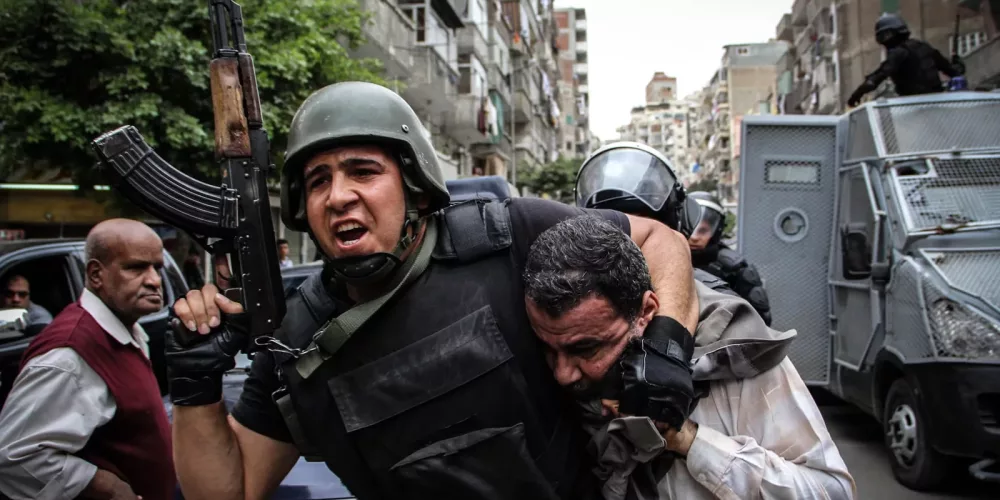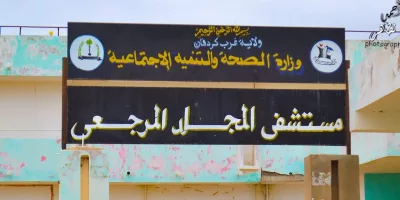The organizations participating in The “Article 55” Alliance have stated that Egyptian authorities continue to misuse laws and regulations to legitimize the repression of human rights defenders, dissidents, and political activists. This is achieved through the use of pretrial detention as a tool to silence opposing voices and prolong their incarceration without fair trials. They also highlighted that the dire conditions in Egyptian detention centers exacerbate violations, as these facilities lack effective oversight, leaving detainees vulnerable to practices that infringe upon their basic rights, including overcrowding, mistreatment, and inadequate medical services.
This was detailed in a comprehensive report submitted by The “Article 55” Alliance in July 2024 to the United Nations Universal Periodic Review (UPR) team for the fourth review of Egypt’s human rights record in January 2025. The report served as a foundation for several points raised in the UPR stakeholders final report.
The UN report noted the alliance’s observations regarding the deplorable and inhumane conditions in detention centers. Prisoners suffer from overcrowding, mistreatment, deliberate medical neglect, and solitary confinement. The report recommended that Egyptian authorities provide adequate food, clothing, clean environments, personal hygiene supplies, and improved healthcare services. It also urged authorities to allow regular visits by family members and lawyers to detainees.
Additionally, the UN report—following recommendations by The “Article 55” Alliance—called for an end to arbitrary arrests, pretrial detention, and disciplinary actions. It emphasized the necessity for compliance with obligations under the International Covenant on Civil and Political Rights (ICCPR), particularly in cases involving freedom of expression. The report recommended setting a maximum legal limit for pretrial detention durations and ensuring adherence to due process in trials and pretrial detentions, in line with the ICCPR and Articles 94 and 55 of the Egyptian Constitution. It also called for an end to mass trials.
The report by The “Article 55” Alliance, submitted to the UPR Working Group, documented major human rights violations in Egyptian prisons and detention centers. These included extrajudicial killings, medical negligence, solitary confinement, and denial of communication with lawyers and families. The report highlighted the use of pretrial detention as a political tool to suppress dissent and circumvent proper legal procedures.
The report also documented a rise in deaths in prisons from January 2020 to June 2024, with 296 documented cases resulting from harsh detention conditions and medical negligence. It asserted that these practices contradict Egypt’s international commitments, including the Convention Against Torture and the ICCPR, as well as the provisions of the Egyptian Constitution.
The report shed light on systematic medical neglect, with the alliance documenting 533 cases of medical negligence in prisons since 2019 and 1,319 cases of denial of healthcare since 2013. Detainees endure inhumane conditions, including overcrowding, poor ventilation, and denial of outdoor exercise, exacerbating their physical and psychological suffering.
The report also addressed solitary confinement as a form of torture, noting its systematic use. Prisoners are isolated for extended periods with no external contact, severely impacting their mental and physical health. The report documented 68 recent cases of solitary confinement, primarily targeting political prisoners, in violation of both Egyptian and international laws.
The report concluded with comprehensive recommendations, including the release of political detainees, improvement of detention conditions, and ensuring prisoners’ rights to medical care and communication with their lawyers. It also called for an end to torture practices, transferring the authority over prisons from the Ministry of Interior to the Ministry of Justice to ensure independent civilian oversight, and allowing local and international human rights organizations to inspect prisons.






